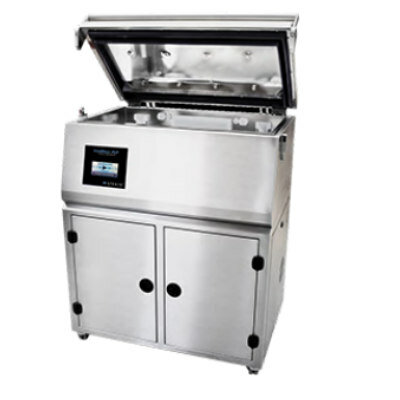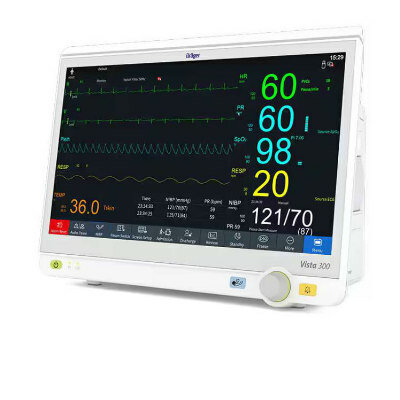Manufacturer of Defective Glucose Monitors Pleads Guilty
|
By HospiMedica staff writers Posted on 27 Dec 2000 |
LifeScan, a Johnson & Johnson company (J&J, New Brunswick, NJ, USA), has pleaded guilty to misdemeanor charges and agreed to pay a fine for selling defective glucose monitoring systems called Surestep, used in some hospitals and by diabetic patients at home. LifeScan will pay a fine of US$29.4 million and an additional $30.6 million in civil settlement to the U.S. government.
The glucose monitoring systems sold between May 1996 and late 1997 had two defects that caused the monitor to register inaccurate readings, sometimes showing an error message instead of a "HI” warning. Another problem related to test strips manufactured before March 1998, which could yield false low test results if the test strip containing the blood sample was not completely inserted into the meter. LifeScan says these problems were corrected in 1997 and early 1998 and notes that the company offered in June 1998 to replace all affected monitors free of charge.
LifeScan acknowledges introducing an adulterated and misbranded medical device, failing to provide appropriate notifications and information to the U.S. Food and Drug Administration (FDA), and submitting false and/or misleading reports to the FDA. The company says nobody at LifeScan engaged in intentional wrongdoing or intentionally sought to mislead consumers or the government. However, LifeScan does admit that the Surestep product labeling was deficient, and that the company did not properly notify the government of those deficiencies and was slow to remedy them.
"Mistakes and misjudgments were made,” said Ralph S. Larsen, chairman and CEO of J&J. "We fully acknowledge those errors and sincerely apologize for them.”
Related Links:
Johnson & Johnson company
The glucose monitoring systems sold between May 1996 and late 1997 had two defects that caused the monitor to register inaccurate readings, sometimes showing an error message instead of a "HI” warning. Another problem related to test strips manufactured before March 1998, which could yield false low test results if the test strip containing the blood sample was not completely inserted into the meter. LifeScan says these problems were corrected in 1997 and early 1998 and notes that the company offered in June 1998 to replace all affected monitors free of charge.
LifeScan acknowledges introducing an adulterated and misbranded medical device, failing to provide appropriate notifications and information to the U.S. Food and Drug Administration (FDA), and submitting false and/or misleading reports to the FDA. The company says nobody at LifeScan engaged in intentional wrongdoing or intentionally sought to mislead consumers or the government. However, LifeScan does admit that the Surestep product labeling was deficient, and that the company did not properly notify the government of those deficiencies and was slow to remedy them.
"Mistakes and misjudgments were made,” said Ralph S. Larsen, chairman and CEO of J&J. "We fully acknowledge those errors and sincerely apologize for them.”
Related Links:
Johnson & Johnson company
Latest Business News
- Expanded Collaboration to Transform OR Technology Through AI and Automation
- Becton Dickinson to Spin Out Biosciences and Diagnostic Solutions Business
- Boston Scientific Acquires Medical Device Company SoniVie
- 2026 World Hospital Congress to be Held in Seoul
- Teleflex to Acquire BIOTRONIK’s Vascular Intervention Business
- Philips and Mass General Brigham Collaborate on Improving Patient Care with Live AI-Powered Insights
- Arab Health 2025 Celebrates Landmark 50th Edition
- Boston Scientific Acquires Medical Device Company Intera Oncology
- MEDICA 2024 to Highlight Hot Topics of MedTech Industry
- Start-Ups To Once Again Play Starring Role at MEDICA 2024
- Boston Scientific to Acquire AFib Ablation Company Cortex
- Hologic Acquires Gynesonics to Strengthen Existing Gynecological Surgical Business
- Smith+Nephew and JointVue Partner on Ultrasound Preoperative Planning in Robotics-Assisted Surgery
- Stryker Completes Acquisition of NICO Corporation
- BD Completes Acquisition of Critical Care from Edwards Lifesciences
- ZOLL to Acquire Vyaire Medical’s Ventilator Business
Channels
Critical Care
view channel
Ingestible Smart Capsule for Chemical Sensing in the Gut Moves Closer to Market
Intestinal gases are associated with several health conditions, including colon cancer, irritable bowel syndrome, and inflammatory bowel disease, and they have the potential to serve as crucial biomarkers... Read moreNovel Cannula Delivery System Enables Targeted Delivery of Imaging Agents and Drugs
Multiphoton microscopy has become an invaluable tool in neuroscience, allowing researchers to observe brain activity in real time with high-resolution imaging. A crucial aspect of many multiphoton microscopy... Read more
Novel Intrabronchial Method Delivers Cell Therapies in Critically Ill Patients on External Lung Support
Until now, administering cell therapies to patients on extracorporeal membrane oxygenation (ECMO)—a life-support system typically used for severe lung failure—has been nearly impossible.... Read moreSurgical Techniques
view channel
Pioneering Sutureless Coronary Bypass Technology to Eliminate Open-Chest Procedures
In patients with coronary artery disease, certain blood vessels may be narrowed or blocked, requiring a stent or a bypass (also known as diversion) to restore blood flow to the heart. Bypass surgeries... Read more
Intravascular Imaging for Guiding Stent Implantation Ensures Safer Stenting Procedures
Patients diagnosed with coronary artery disease, which is caused by plaque accumulation within the arteries leading to chest pain, shortness of breath, and potential heart attacks, frequently undergo percutaneous... Read more
World's First AI Surgical Guidance Platform Allows Surgeons to Measure Success in Real-Time
Surgeons have always faced challenges in measuring their progress toward surgical goals during procedures. Traditionally, obtaining measurements required stepping out of the sterile environment to perform... Read morePatient Care
view channel
Portable Biosensor Platform to Reduce Hospital-Acquired Infections
Approximately 4 million patients in the European Union acquire healthcare-associated infections (HAIs) or nosocomial infections each year, with around 37,000 deaths directly resulting from these infections,... Read moreFirst-Of-Its-Kind Portable Germicidal Light Technology Disinfects High-Touch Clinical Surfaces in Seconds
Reducing healthcare-acquired infections (HAIs) remains a pressing issue within global healthcare systems. In the United States alone, 1.7 million patients contract HAIs annually, leading to approximately... Read more
Surgical Capacity Optimization Solution Helps Hospitals Boost OR Utilization
An innovative solution has the capability to transform surgical capacity utilization by targeting the root cause of surgical block time inefficiencies. Fujitsu Limited’s (Tokyo, Japan) Surgical Capacity... Read more
Game-Changing Innovation in Surgical Instrument Sterilization Significantly Improves OR Throughput
A groundbreaking innovation enables hospitals to significantly improve instrument processing time and throughput in operating rooms (ORs) and sterile processing departments. Turbett Surgical, Inc.... Read moreHealth IT
view channel
Printable Molecule-Selective Nanoparticles Enable Mass Production of Wearable Biosensors
The future of medicine is likely to focus on the personalization of healthcare—understanding exactly what an individual requires and delivering the appropriate combination of nutrients, metabolites, and... Read more















